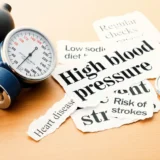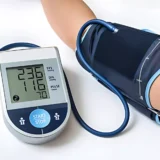Diarrhea

Diarrhea
Diarrhea is a prevalent gastrointestinal disorder characterized by loose and watery stools. It is common for most people to experience diarrhea at least once or more each year.
It is crucial to address diarrhea promptly as, if left untreated, it can lead to dehydration, which, in severe cases, can be life-threatening.
Viral diarrhea can be prevented by practicing diligent hand washing or using hand sanitizers regularly. Taking these simple preventive measures can significantly reduce the risk of contracting viral infections that cause diarrhea.
Causes of diarrhea
Diarrhea is typically caused by a virus in the intestines or stomach.
There are many conditions that can cause diarrhea including:
- Lactose intolerance
- Celiac disease
- Crohn’s disease
- Irritable bowel syndrome
Other factors that can contribute to a diarrhea episode include:
- Alcohol use disorder
- Food allergies
- Diabetes or prediabetes
- Medications such as antibiotics, cancer drugs or antacids with magnesium
- Certain foods or substances found in fructose and artificial sweeteners
- Laxative abuse
Risk factors for diarrhea
There are a variety of factors that can increase your chances of getting diarrhea, including:
- Age — diarrhea is more common in younger children under the age of three and elderly patients.
- Comorbidity — if you have a serious condition such as diabetes or kidney diseases you might be more likely to have diarrhea.
- Environment — people who live in or travel to areas with poor sanitation are more likely to develop diarrhea.
- Symptoms of diarrhea
- Diagnosis of diarrhea
- Treatment for diarrhea
- Gastroesophageal Reflux Disease (GERD)
Signs or symptoms of diarrhea can come on quickly and may include:
- Loose, watering bowel movements
- Abdominal pain or cramps
- Bloating
- Gas
- Nausea
- Urgent need to have a bowel movement
- Fever
- Bloody stool
Diarrhea can be diagnosed during a physical exam conducted by your primary care physician. Your doctor will conduct a comprehensive assessment of your medical history and may recommend additional tests to identify the underlying cause of your diarrhea. This thorough evaluation is essential in determining the appropriate treatment and providing you with the necessary care and support.
Tests may include:
- Blood test — a complete blood count can be performed to determine the underlying condition causing your diarrhea.
- Stool test — determines what is causing the diarrhea, potentially a bacteria or parasite.
- Flexible sigmoidoscopy or colonoscopy — allows your doctor to see inside the colon to determine the cause of your symptoms.
Most people do not need medical treatment for diarrhea. Acute episodes of diarrhea typically resolve without treatment within a couple of days.
If you have persistent diarrhea, your doctor may recommend the following treatments:
- Over-the-counter medication such as psyllium or bismuth subsalicylate
- Probiotics — taken as a pill or powder, increase healthy bacteria in the digestive system
- Antibiotics — for diarrhea caused by bacteria or parasites
- Hydration — replacing lost fluids is crucial in treating diarrhea
Diarrhea often arises as a symptom of an underlying condition, and its relief lies in addressing the root cause. By treating the underlying condition, you can find relief from diarrhea. In cases where symptoms are severe, a referral to a gastroenterologist may be necessary. Gastroenterologists possess expertise in diagnosing and treating a wide spectrum of digestive disorders, ensuring comprehensive care for your gastrointestinal health.
If you encounter heartburn or acid reflux occurring more than twice a week, Gastroesophageal Reflux Disease (GERD) might be the underlying issue. The classic symptom of GERD involves a burning chest pain that intensifies after eating and while lying down. This sensation arises when stomach acid or bile flows into the food pipe, irritating its lining. In the majority of cases, GERD can be effectively managed through lifestyle adjustments and over-the-counter medications. However, severe cases may require more potent medications or even surgical intervention.
The prevalence of GERD is primarily driven by the increasing rates of obesity. While most individuals with GERD find relief through medications, approximately 15 percent of sufferers might experience difficulties tolerating medications, concerns about side effects, or an inadequate response to medical treatments.




